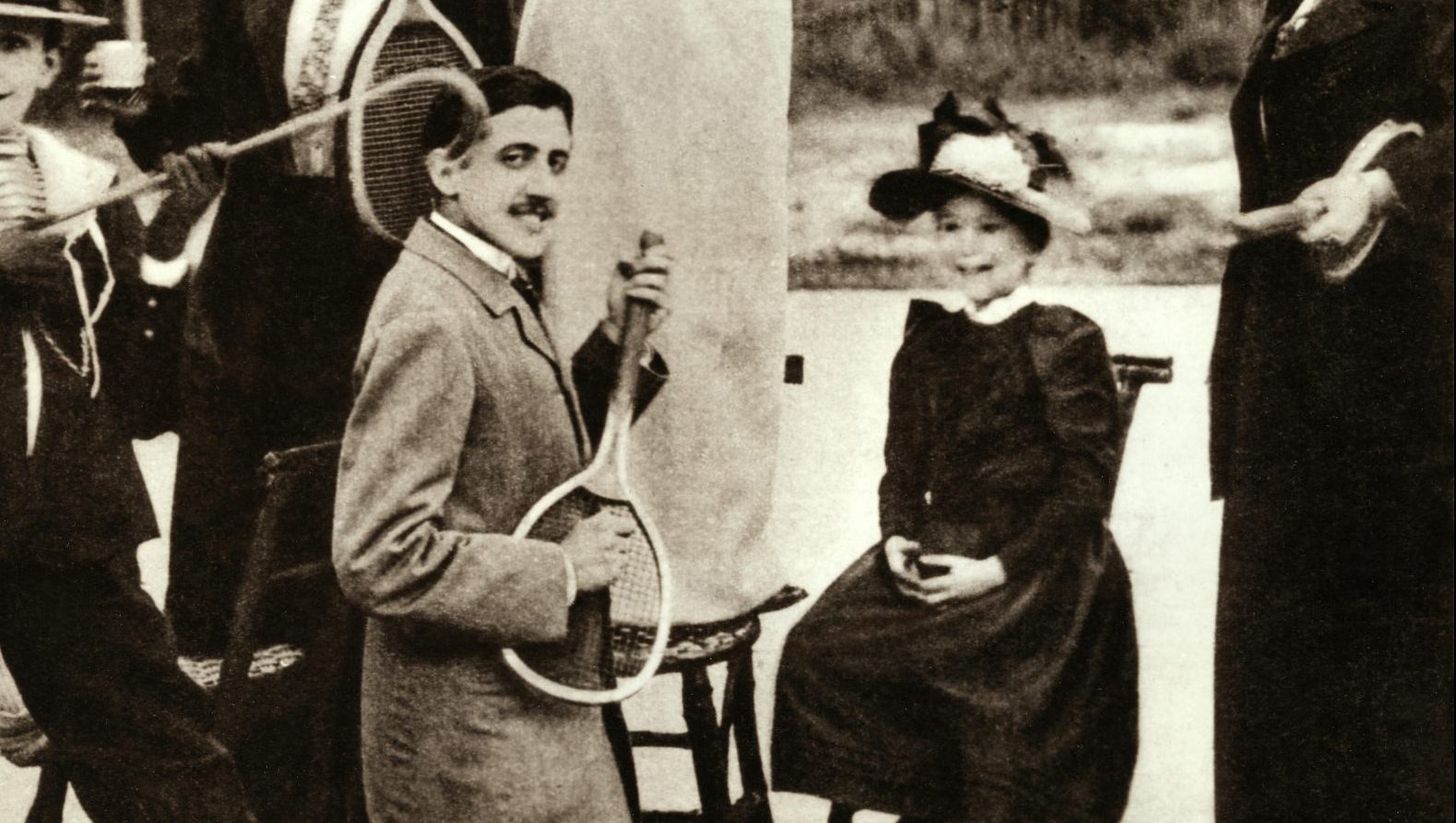Violet and Sydney Schiff left nothing to chance. The wealthy patrons of the arts selected a private dining room at the Majestic Hotel on the ChampsÉlysées and booked it for 12.30am on the night of May 18, 1922, a dinner to celebrate the premiere of Igor Stravinsky’s one-act opera-ballet Renard, performed that evening at the Paris Opera by Sergei Diaghilev’s Ballets Russes.
Stravinsky and Diaghilev were on the guest list, of course, with a selection of Russian hors d’oeuvres arranged as a nod to their homeland.
Pablo Picasso was expected too, but the big cultural fish the Schiffs were hoping to land that night were James Joyce and, most importantly, the man who was in effect the guest of honour: Marcel Proust.
For all the effort they’d put into preparing the night for him – they even saw to it that each course included food that featured in Proust’s work: asparagus, boeuf en gelée, almond cake, pistachio ice cream – the only aspect of the occasion that remained outside the Schiffs’ control was Proust actually turning up.
A lifetime of poor health had left the former mainstay of the Paris arts scene reclusive and elusive, not to mention how two weeks earlier he had burned his throat and stomach drinking undiluted adrenaline in an effort to steel himself for a previous dinner engagement with the Schiffs.
On the rare occasions that Proust was seen out and about, it was always late at night so if the hosts of this remarkable gathering of epoch-defining 20th-century cultural figures were going to coax him from his sickbed, the late hour, distinguished fellow diners and a flattering menu gave them the best chance.
When the diners sat down for the first course there were two empty seats at the table: Joyce’s and Proust’s. The Ulysses author eventually rolled in roaring drunk and under-dressed and slumped into his seat. The courses came and went with the Schiffs keeping the conversation flowing as best they could while glancing towards the door until, at 2.30am with coffee being served, Proust finally walked in.
According to the art critic Clive Bell, also a guest that night, Proust presented “a small, dapper figure clad in exquisite black with white kid gloves… physically he did not please me, being altogether too sleek and dank and plastered. His eyes were glorious, however.”
When, in 1913, Proust had completed Swann’s Way, the first part of his gargantuan literary achievement À la recherche du temps perdu (In Search of Lost Time), such an occasion as this seemed utterly unthinkable.
A social climber of shameless enthusiasm before he established himself as a writer of rare talent, depth and innovation, Proust had always been looked down upon by the Parisian cultural elite as a snobbish dilettante, a hanger-on at the fringes of high society with literary pretensions that nobody believed he could fulfil. Not through lack of talent, necessarily, rather that he appeared to lack serious application.
It had, after all, taken him nine years to translate two volumes of John Ruskin into French.
By his late thirties, however, Proust was displaying hitherto uncharacteristic dedication to his writing. It’s possible that a combination of the death of his beloved mother in 1905, a moment of epiphanic memory prompted by the taste of tea and a rusk biscuit (that famously became the madeleine dipped in lime-blossom tea in Swann’s Way that prompted l’édifice immense du souvenir, the immense edifice of memory, that drives the narrative) and the increasing awareness of his own poor health – he suffered from asthma – prompted the development of an exhausting work ethic.
Whatever the reason, he spent more and more time shut away in his Paris bedroom writing by the light of a green-shaded lamp, the cork-lined walls keeping the noise of the city at bay, until finally he emerged, pale and wheezing, with the manuscript of Swann’s Way.
Initial responses from publishers were cool at best, hostile at worst. André Gide rejected it outright for the Nouvelle Revue Française. One publisher said: “At the end of this 712-page manuscript one has no notion – none – of what it is about”, while another wondered, “I may be dead from the neck up, but rack my brains as I may, I fail to understand why a man needs 30 pages to describe how he tosses and turns in his bed before falling asleep.”
Undeterred, Proust eventually published Swann’s Way at his own expense. It was soon clear the book was a masterpiece. Rainer Maria Rilke called it “incomparably remarkable” while Henry James “devoured it in a passion of curiosity and admiration”.
Gide realised his mistake and published the remaining volumes, admitting in a letter to the author, “I thought of you, shall I confess it, as a snob, a man of the world, and a dilettante – the worst possible thing for our review.”
Increasingly absorbed by his monumental seven-volume work, Proust’s seclusion only exacerbated his health worries: the less time he spent out in the world, the more convinced he became of the inherent dangers to his health within it.
As well as his asthma, he claimed a series of allergies, including to pollen, dust, damp, smoke and the scents of certain flowers. He complained of chronic fatigue, chronic pain and chronic anxiety, and a man once renowned for his constant ingratiating presence at restaurants, soirées and cocktail bars became an enigmatic absence from the Parisian social whirl.
Hence the Schiffs’ concern that their dinner party would pass without the man for whom it had been thrown.
Yet, deep into the night, there he was at last, waxy, wheezing and wrapped in furs against a non-existent chill. Seated next to a near-comatose Joyce, Proust attempted small talk with Stravinsky by praising Beethoven’s late string quartets.
“I detest Beethoven,” the composer replied.
According to witnesses the conversation with Joyce, a meeting of arguably the two greatest writers of the 20th century, progressed no further than a series of brief and excruciating exchanges, mainly about their ailments.
Six months later, to the day, Proust was, indeed, dead. When the news emerged Jean Cocteau went to sit with the corpse. He’d arranged for Man Ray to photograph the lifeless author and as he waited noticed a pile of paper on the mantelpiece: part of the manuscript of Á la recherche du temps perdu, the masterpiece of modern literature that changed the course of literary fiction.
Looking from the manuscript to its creator in the bed next to him, Cocteau was suddenly aware of how this room filled with death still thrummed with life.
“That pile of papers was still alive,” wrote Cocteau, “like watches ticking on the wrists of dead soldiers.”




